Prisons to close in England as super-prison site revealed
- Published
- comments
Danny Shaw: "I don't think there's going to be a net increase in prison places"
Four prisons in England are to close as the government announced the site for a new super-prison in north Wales.
The jails in Reading, Dorchester, Blundeston and Northallerton will be shut down by March next year, Justice Secretary Chris Grayling said.
Feltham Young Offender Institution will also be replaced.
But campaigners said replacing old prisons with new, bigger ones would make them harder to manage and would not reduce crime.
'Overcrowded and violent'
The closures mean 1,400 prison places will be lost in England and Wales while the new £250m prison in Wrexham will hold more than 2,000 inmates.
The super-prison will create 1,000 jobs, according to the government.
In the four English prisons that are due to close, 685 staff could lose their jobs.
Dartmoor prison, in Devon, is also likely to shut, although not for some time.
Work will start on the new Welsh prison next summer and it is due to open by late 2017.
Officials are also investigating the possibility of building another large prison in south-east England - possibly on the existing Feltham site in west London - with a youth facility attached.
Mr Grayling said the plans would "modernise" the prison system and bring down costs. He pledged there would be more prison places than when the coalition was elected in 2010.
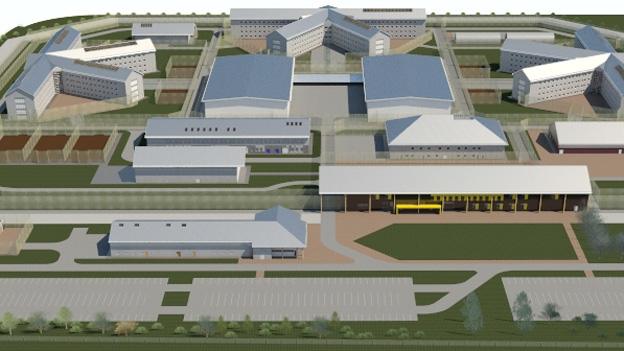
This is how the super-prison could look, according to artist impressions released by the Ministry of Justice
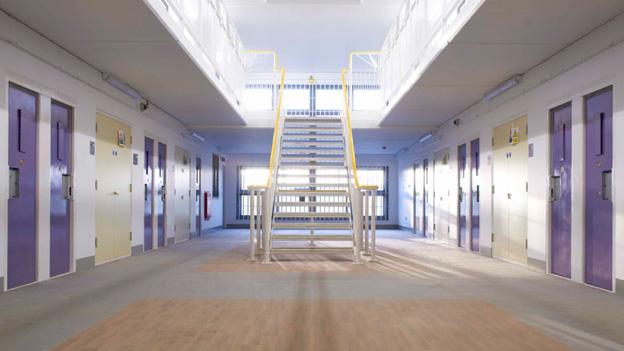
This is an interior view of what it could look like
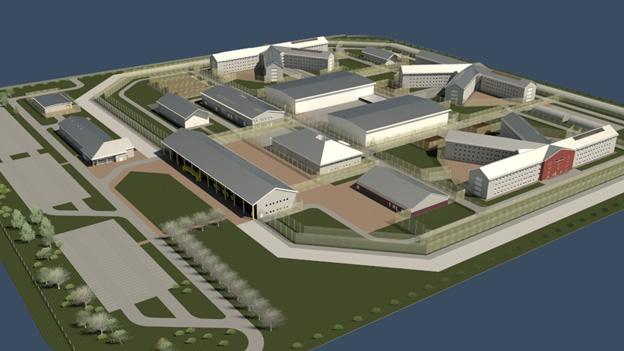
The details of the super-prison have not been finalised
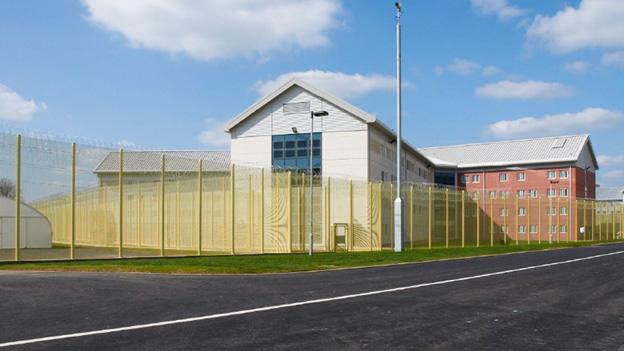
The prison would be built on the site of the former Firestone tyre factory in Wrexham
"Of course the reorganisation of our prison estate which we are undertaking means some difficult decisions," he added.
"But we have to make sure that we have modern, affordable prisons that give the best opportunity for us to work with offenders to stop them committing more crimes when they leave."
But the Prison Officers Association accused ministers of paying "lip service" to prison workers who it said have to work in "overcrowded and violent" institutions.
Chairman Peter McParlin said the closure programme was "cuts-driven and does nothing for the rehabilitation revolution".
Last year around 19,140 inmates on average were made to share a cell designed for one person, according to Ministry of Justice figures.
Since January, 2,800 "unstrategic and uneconomic" prison places have been cut from the estate, his department added.
It said the four new closures would reduce the prison budget by £30m a year.
The new closures brings the total number of prisons closed since May 2010 to 16.
'Too large'
There has been a mixed reaction to the announcement from prison reform campaigners.
"Closing failing prisons is the right move to make, but without a coherent strategy to reduce prison numbers it will make the problem of overcrowding worse," said Frances Crook from the Howard League for Penal Reform, adding the new super-size prisons would be "too large to manage effectively".
Juliet Lyon, director of the Prison Reform Trust, added: "Closing small local prisons and replacing them with super-sized jails will not reduce crime or make communities safer."
Labour said its plans while in government would have "would have provided cheaper prison places much earlier".
"New prison places don't appear out of fresh air to replace those being closed now," shadow justice secretary Sadiq Khan said.
Meanwhile, the MoJ also announced The Verne in south Dorset will become an immigration removal centre, with capacity for around 600 detainees awaiting deportation.
Downview prison, in Surrey, is to hold male rather than female prisoners and Warren Hill, in Suffolk, will stop holding young offenders and will instead hold adult males, it added.
Figures published by the Ministry of Justice show that jails held an average of just over 85,000 prisoners between April 2012 and March this year.
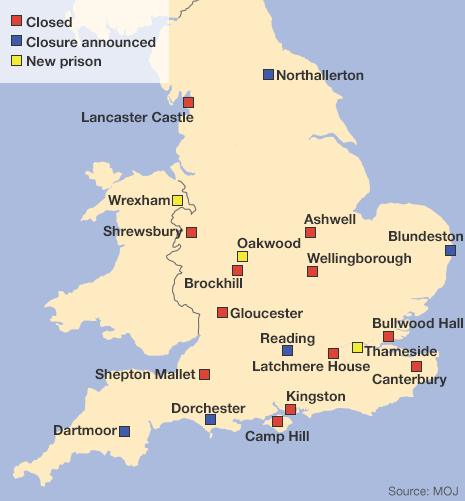
- Published5 September 2013
- Published10 January 2013
- Published11 January 2013
- Published11 January 2013